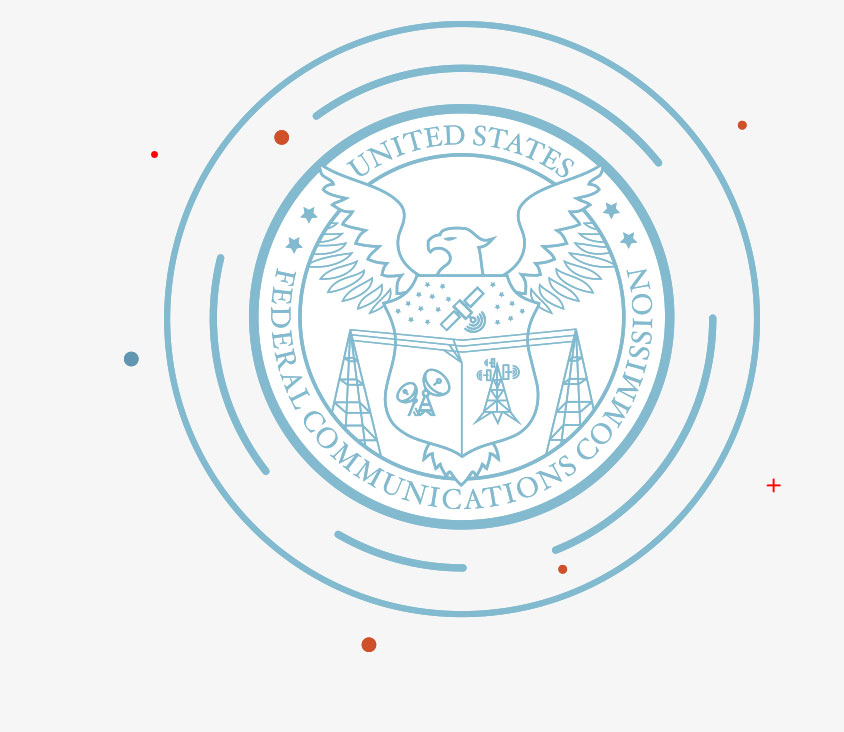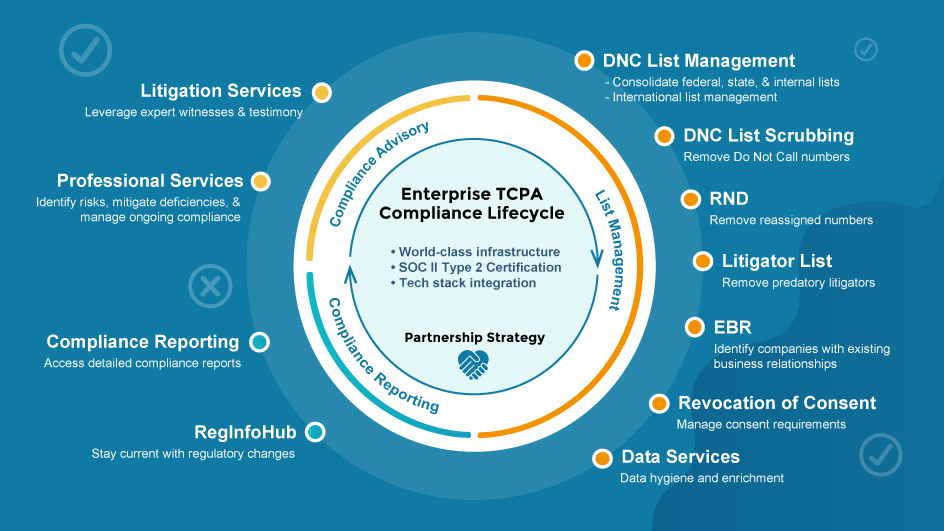
FINES
B2B Calls And Texts Are At Risk
At the federal level, many B2B calls must comply with the National Do Not Call (DNC) Registry. In addition, state-level regulations vary widely, with several states offering no exemptions for B2B communications. While non-marketing messages such as surveys, appointment reminders, or billing notifications typically fall outside TCPA rules, marketing-oriented messages—including product promotions, customer win-backs, or even “dual-purpose” calls—must comply with federal and state DNC laws.
Top TCPA Myths That Put B2B Companies in Danger
False. The classification of a number depends on its use, not its label. In many cases, states make no distinction between business and personal lines, and a growing number of mobile phones are used for both. The best practice is to scrub all numbers against the Federal DNC Registry.
False. Consent can quickly become invalid if the lead ages or the number is reassigned. Businesses are responsible for validating consent and ensuring that it is written, specific, and current. The seller—not the lead generator—is liable under TCPA.
False. If you’re using an automated dialing system (ATDS)—such as IVRs, voicemail drops, or AI-generated voice calls—you may be subject to TCPA even if you don’t think of it as a “robocall.”
False. Wireless numbers are still regulated under TCPA regardless of business classification. Many state rules mandate strict callable windows—and these should be based on the recipient’s physical location, not the area code.
False. If you're using regulated technology, you are responsible for honoring opt-outs. Internal DNC requests must be accepted and honored within 10 days, and companies are required to maintain these records for five years. Opt-outs can be made via any reasonable method and must be respected—period.
B2B FACTS
Key TCPA Compliance Facts for B2B Organizations
- Calls and texts to wireless numbers are subject to TCPA—regardless of the recipient's business status.
- Marketing calls to wireless numbers using ATDS, require prior express written consent.
- Prerecorded or artificial voices requires prior express written consent.
- Residential subscribers are protected regardless of call purpose.
- If your business contacts mobile numbers used for both personal and business purposes, you must fully comply with TCPA standards.


BRAND PROTECTION
Protect Your Brand, Your Bottom Line, and Your Business
TCPA lawsuits are a threat for B2B organizations. The combination of unclear phone number use, aggressive marketing strategies, and outdated compliance processes can create a perfect storm for violations.
HOW WE HELP YOU
How PossibleNOW Helps You Stay Compliant
With our industry-leading platform DNCSolution, we help B2B companies navigate the complexity of TCPA compliance with confidence. From scrubbing your call lists against federal and state DNC registries to managing consent and opt-out preferences across all communication channels, our solutions are purpose-built to protect your brand from costly fines and reputational damage.
With over 25 years of experience and industry-leading compliance technology, PossibleNOW ensures you don’t just follow the rules—you stay ahead of them.
Partner with PossibleNOW to simplify compliance, reduce liability, and protect your business from TCPA violations.
Learn More About Our Compliance Solutions

